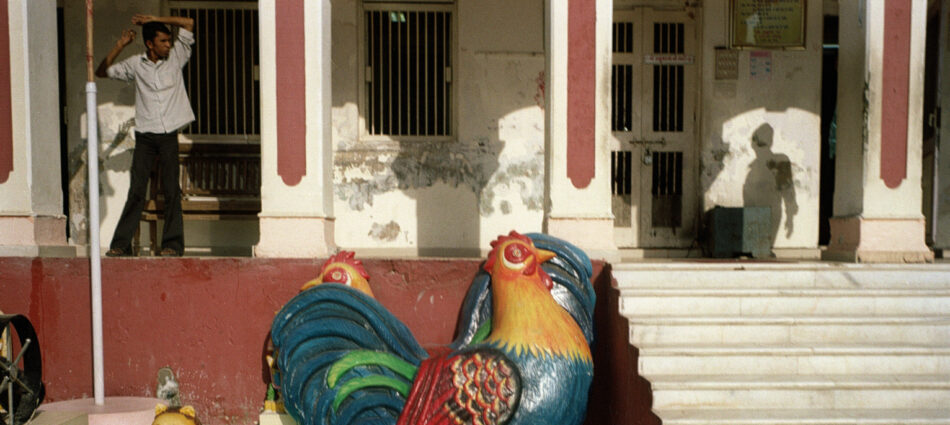
Gujarat’s Faded Testaments: The Parables Of Bet Dwarka
On any given day hundreds of Hindu pilgrims can be seen standing in the courtyard of Bet Dwarka’s famous Krishna temple. On the day of the annual festival, tens of thousands will congregate here. And on that special day, as on any ordinary day, the pilgrims would have been helped to cross the three kilometer stretch of the Arabian Sea that separates the island of Bet Dwarka from the Gujarati mainland by dozens of Muslim boat and ferry owners who are the predominate occupants of the four villages on the island.
View Faded Testaments : Gujarat in a larger map
There are many Sufi dargahs on the island, including the near 500-year old Syed Haji Ali Dawood Shah Kirmani, revered by both Hindus and Muslims who can be seen quietly offering their offerings and asking for blessings at the shrine at any hour of the day. In fact, there are over seven different Sufi dargahs scattered about the island, a number of madrassas to cater to the educational needs of the Muslims who live in the four main villages on the island.
The close relationships between the island’s Muslim and Hindu communities in fact reveal a blurring of religious and spiritual lines, reminding us of the artificiality of the labels of ‘Hindu’ and ‘Muslim’ and the ordinary human being’s ability to find accommodation and tolerance of the practices and values of his neighbors. Perhaps its finest embodiment is the continued performance of music at the Krishna temple by Muslim musicians, including the famous Fakir Mohammed Alia Mir. The temple’s pujaris are often seen at the shrine of Syed Kirmani and will also participate in the tazia processions during Muharram.
The heat of the days, at times reaching 40 – 43 C (104 – 110 F) made it difficult to fully explore the island in the three days that I spent there. But I am determined to return and explore this unique island further. Many pointed to the villages on the far side of the island that they thought I should visit and meet with the people there. Here, in this rather remote corner of Gujarat, there remains a community of people who have resisted the temptations and seductions of the sectarian extremists. Recognizing their mutual dependence, for life, spirituality and survival, members of Bet Dwarka’s communities continue to find ways to overcome suspicion and the interferences of the ‘purists’.